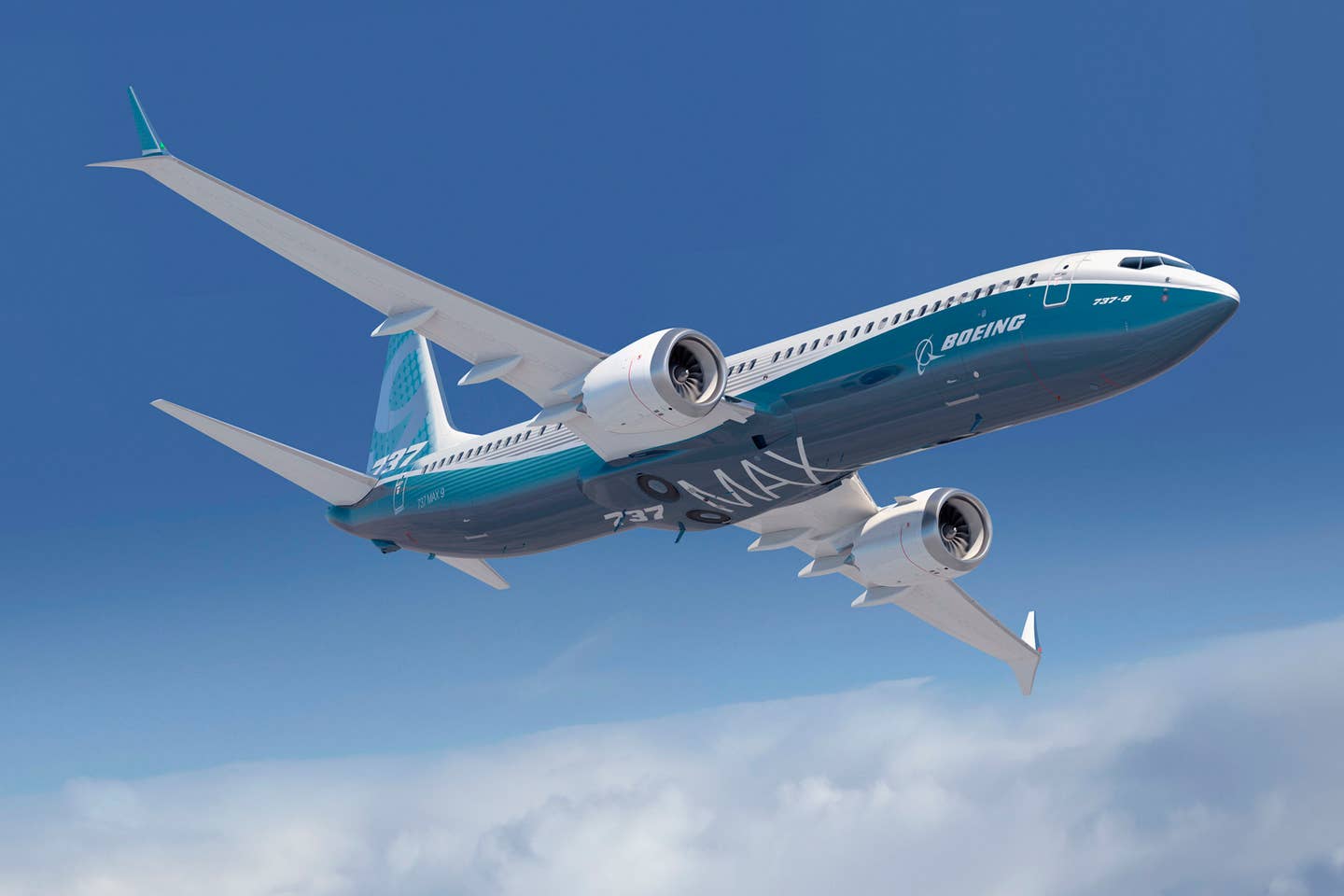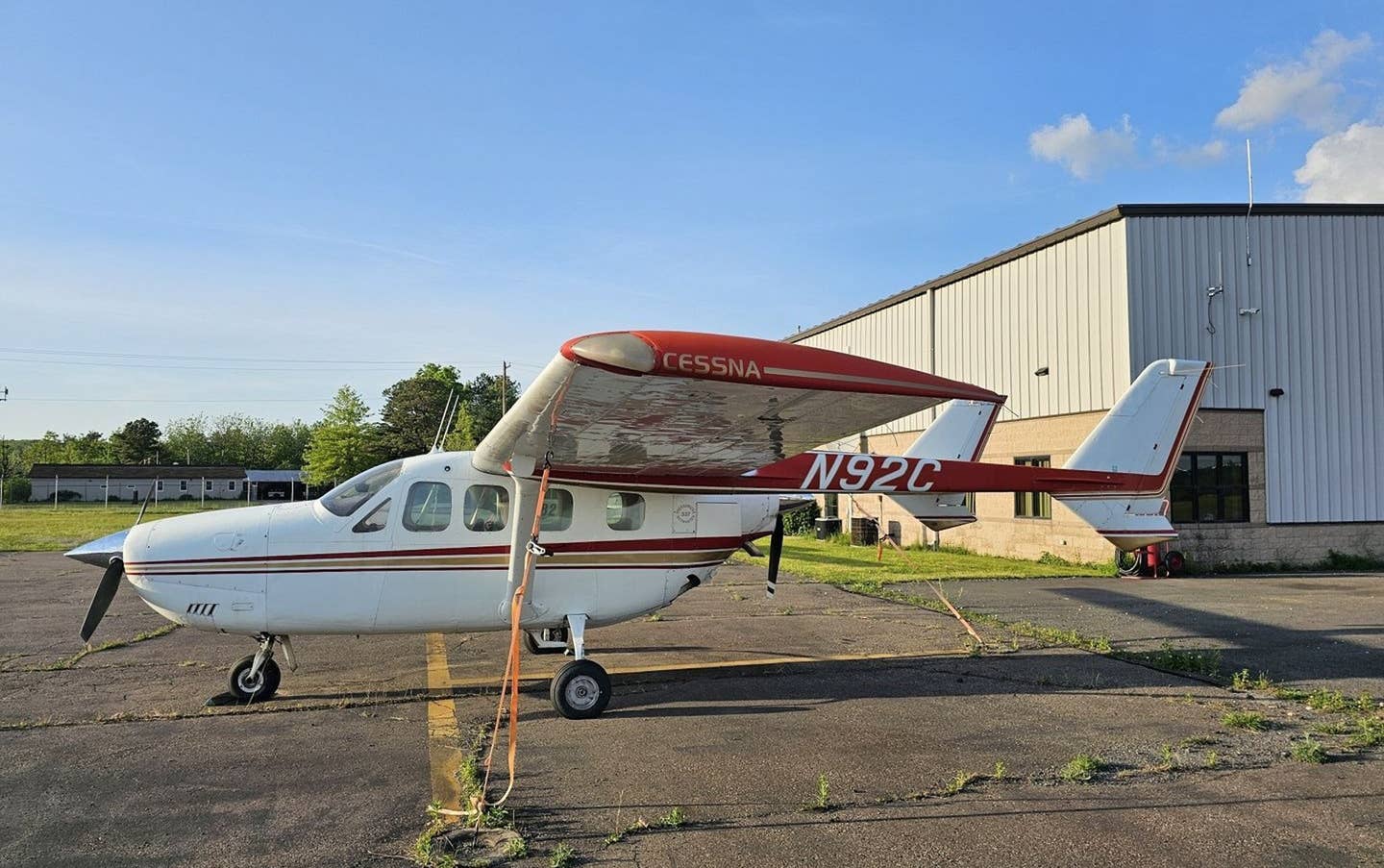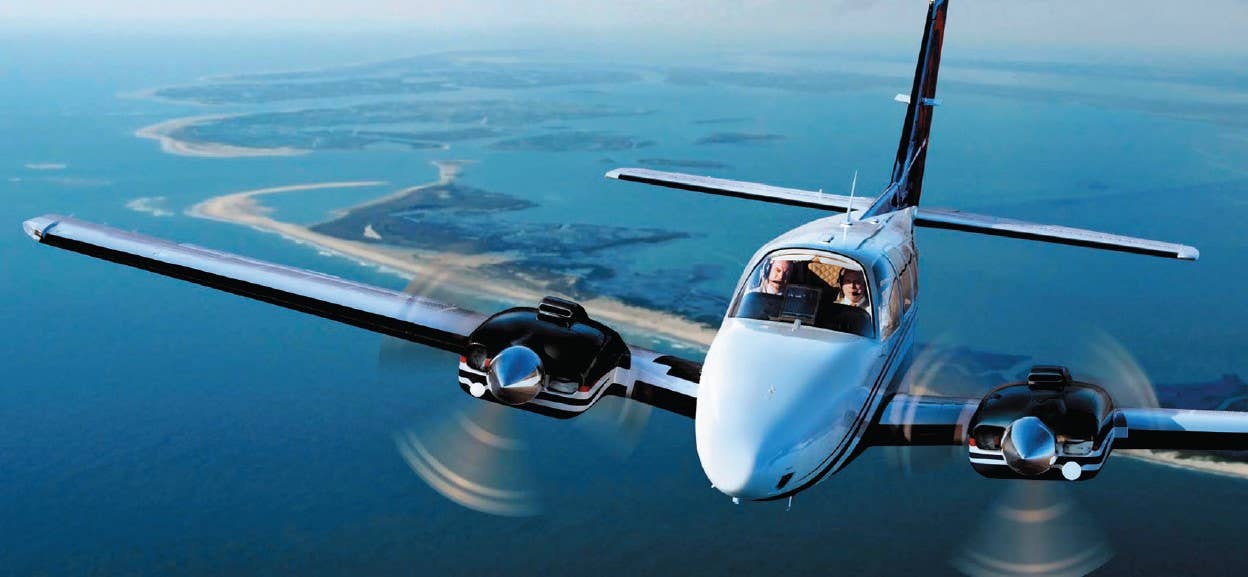
The FAA certified the 737 Max in 2017. [Courtesy: Boeing]
A jury has found a former Boeing pilot not guilty of deceiving the FAA about an issue with the 737 Max flight control system blamed for two fatal crashes.
Late Wednesday, a Texas jury acquitted 50-year-old Mark Forkner, of Keller, Texas, on all four counts of wire fraud stemming from accusations that in his role as chief technical pilot during the development of the 737 Max, he mislead an FAA representative about the amount of training pilots for the 737 Max would need to operate the maneuvering characteristics augmentation system (MCAS), an automation feature. The MCAS is software that lessens the need for pilot input during flight.
The trial, held in Fort Worth, lasted four days. According to the Wall Street Journal, the jury deliberated for less than two hours.
Forkner's attorneys called only one witness, a current Boeing test pilot, who testified before closing arguments.
One juror, who did not give his name, noted that the jury saw “very little evidence” that Forkner intentionally sought to deceive his FAA counterpart, rather it was "more a corporate and regulatory failure of communication."
Prosecutors described it as a scheme to enrich the Boeing Company by defrauding American Airlines Group Inc. and Southwest Airlines Co. of tens of millions of dollars.
Each count carried a maximum penalty of 20 years in prison.
The Case
The prosecution alleged that Forkner misled FAA inspector Stacey Klein about the need for pilots to be trained on the MCAS. The software, part of the cockpit automation, was designed for military tanker variation of the Boeing 767 as a flight stabilization program. It was adapted for use on the Max, which Boeing intended to certify as another variant of its popular 737 design.
The 737 Max was certified in 2017.
Forkner left Boeing in 2018 to take a job at Southwest Airlines, leaving that job in 2020.
The defense argued that Forkner was being made a scapegoat. His attorneys noted that he wasn't an engineer and that "many others" were involved in the design and certification of the MCAS on the 737 Max.
How We Got Here
During the flight tests of the aircraft, it was determined that the size of the engines and their placement on the wings resulted in a nose up pitch moment during certain maneuvers. To counter this, Boeing engineers applied a solution through MCAS. When the flight computers detected a nose high attitude and reduction in airspeed, MCAS software initiated a repositioning of the horizontal stabilizer, which would lower the nose.
The alternative to the MCAS would have been an aircraft redesign, which would have been costly and time-consuming for Boeing. To achieve certification of the aircraft, Boeing tested MCAS at higher speeds, but according to the defense, did not tell Forkner that software for lower speed operations had been added as well.
Forkner was responsible for developing the training materials and the pilot manuals for the design.
There was no mention of MCAS issues in the pilot manuals when the Max entered service in 2017.
As such, the pilots were unaware of it, until there were two deadly crashes—one by Lion Air in October 2018 and another by Ethiopian Airlines in March 2019, which took the lives of 346 people. Investigators determined that both crashes were attributed to the MCAS acting on false data from a single angle of attack sensor that put the aircraft into unrecoverable dives shortly after takeoff.
The entire world fleet of Boeing 737 Max aircraft were grounded for two years while Boeing, the NTSB, and the FAA investigated the crashes.
Boeing stressed that MCAS was designed for better aircraft handling, not as a stall prevention tool.
Changes were made to the MCAS software and training protocols were developed. The aircraft returned to service in November 2020.
Prosecutors argued that Forkner downplayed the effects of the MCAS software, saying that he knew that MCAS had been expanded, not only to activate in certain high speed flying conditions but also in low-speed flying conditions, and he did not relay this information to Klein, and as such, the FAA did not push for MCAS to be included in the pilot training materials.
Klein testified that she relied on Forkner to tell her about any design changes to the Max. She stated that Forker raised his voice and his face would turn red as he slammed his hands on the table during their meetings. According to Courthouse News, Klein testified that she felt bullied.
Forkner's attorneys argued that Forkner did not lie to Klein, saying that he told the truth as he knew it, adding that his former coworkers at Boeing, the engineers, and the test pilots responsible for designing the automated features of the aircraft withheld information about changes in the software.
They alleged that it was Boeing's directors that pushed for reduced pilot training requirements as a cost saving measure.
Forkner was the only Boeing employee to face criminal charges.
Last year, Boeing agreed to a $2.5 billion settlement with the Justice Department to resolve charges that the company's employees had misled the FAA. The settlement included a fine of $244 million and approximately $2.3 billion in compensation to airline customers and families of the crash victims.
The 737 Max issue has led to congressional and regulatory investigations and a new federal law aimed at increasing oversight of airplane manufacturers.

Subscribe to Our Newsletter
Get the latest FLYING stories delivered directly to your inbox






